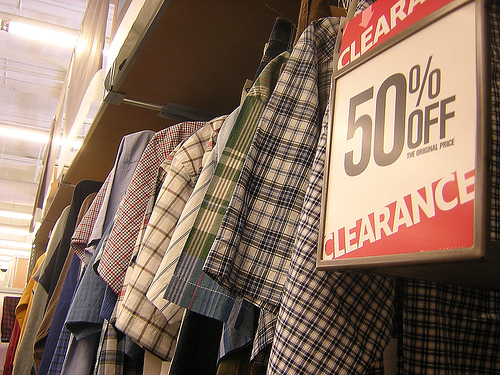photo by hlakhani
I think I went a little overboard with my frugality. I know, it’s hard to believe that’s possible, but hear me out.
Last week, I made the decision to join a gym. For the record, I went with the 12-month commitment at $20 a month. Because we were already paying for the membership, I didn’t want to put any extra money toward my exercise budget. Even though I was primarily jogging, I didn’t want to spend money on new sneakers. So I pulled out the old pair I’ve had for 9 years.
My feet were killing me after every work out. At first I chocked it up to being out of shape. You’re supposed to be sore at first, right?
It was particularly painful Thursday night, though. I found myself limping on my way home. When I finally took off my shoes — excuse me for being too graphic — I found that my ratty old sneakers had drawn blood. Ouch.
When Tony saw what had happened, he was angry with me. “I thought frugality was about making smart choices with your money, not depriving yourself to the point of physical pain.”
He’s right. The frugal choice would have been to shop around and find a good deal on a good pair of running shoes. I shouldn’t be spending hundreds of dollars on sneakers, but I also shouldn’t be working out with old shoes that tear up my feet and threaten damage to my knees and other joints because they don’t offer proper support.
Last night, Tony and I went to several shoe stores. We found a reasonably priced pair of running shoes on clearance for $40 and used some of the Christmas money that I was going to put toward my gym membership to pay for them.
I was concerned about investing too much in working out because I was afraid of not sticking to it. Tony made a good point, though. Even if I don’t stick to it, a good pair of sneakers is a good investment. Most importantly, it’s an investment we can afford right now.




